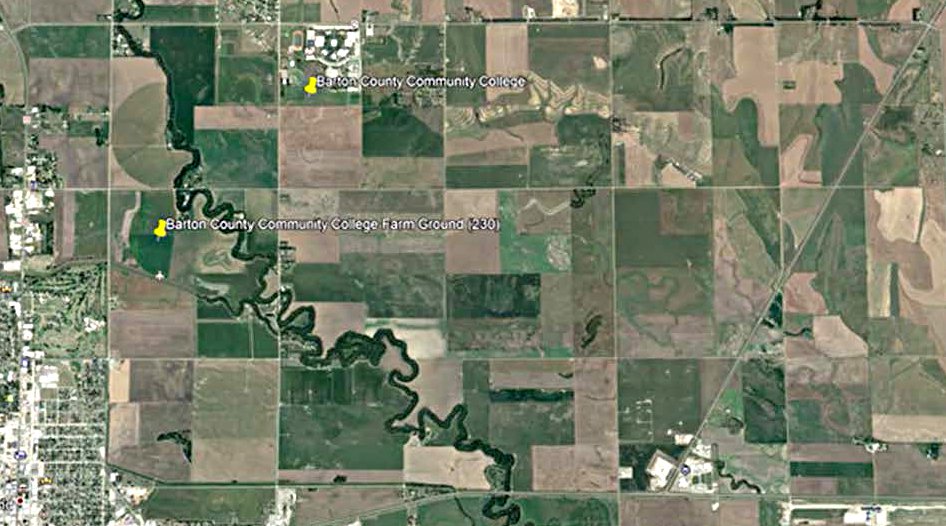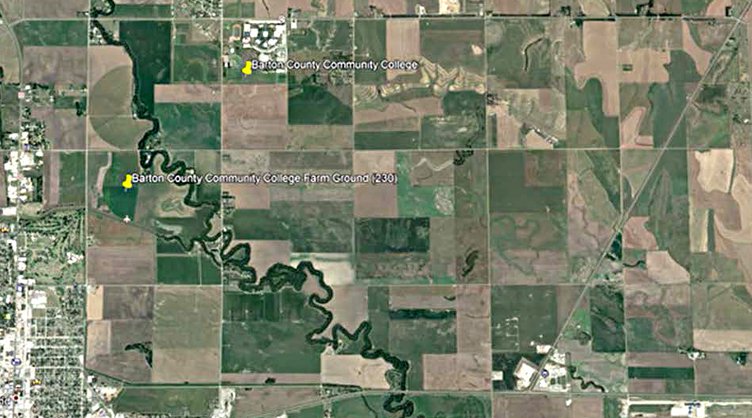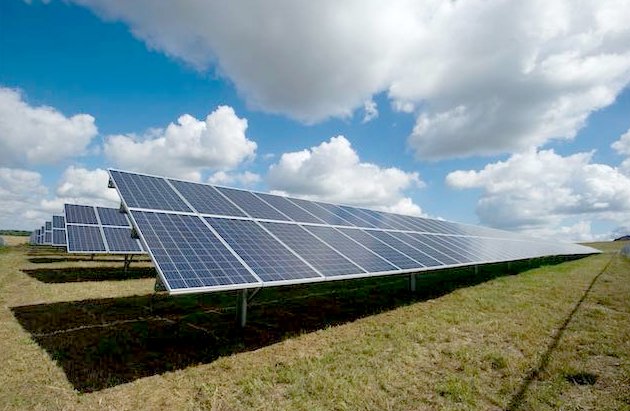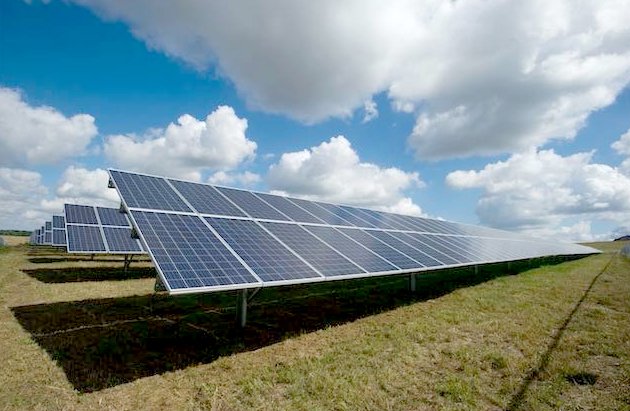An energy company based out of Omaha, Neb., is in the initial stages of developing a 150-megawatt solar project in Barton County. Area landowners have been contacted about possibly leasing land to Tenaska, a company with more than 30 years experience in the energy industry.
Barton County Farm Bureau brought landowners together with Kansas Farm Bureau legal council Wendee Grady last week so they could learn more about the contract language. Keith Miller, a Barton County farmer and member of KFB’s state board of directors, chaired the meeting. Tenaska sent Michael C. Roth, the company’s director of strategic development and acquisitions.
Miller said Farm Bureau wanted to make sure landowners understood the ins and outs of a possible lease contract.
“It could be a really good project for the area — or it might not happen,” Miller said. “I think it has a lot of possibilities but it’s first got a lot of hurdles to jump through. It’s got its good points and it’s got a few drawbacks.”
For starters, the energy company would like to build northeast of Great Bend, near an electric substation it could hook into with the transmission line it will need to build. But land within three miles of the city is subject to city and county zoning.
Land zoned as agricultural would a rezoned as commercial, which would increase taxes on the property. During this preliminary stage, leases would be for three to five years and farming could continue on the land. Once the company starts building, the land would become commercial property and a lease would be for 30-50 years.
There are environmental studies that the company would do, but overall Miller said he thinks solar energy would not create a problem. “They don’t make any noise,” Miller said of solar farms. The only thing neighbors are likely to notice is the reflection of the sun off the solar panels.
“I was disappointed that it wouldn’t bring many jobs,” Miller continued. The college reports the project could create 500 jobs during the construction phase but it would only take five or six people to maintain the facility. Miller said the permanent jobs would include cleaning the solar panels and mowing the grass that will be planted under them.
Kansas electric transmission is served by the Southwest Power Pool, a Regional Transmission Operator (RTO) as recognized by the Federal Electric Regulatory Commission. All transmission projects in the SPP footprint must go through study and approval by the RTO before being built.
On a positive note, Miller said financial gain from leasing ground to Tenaska would greatly exceed what the land can be leased for farming operations.
BCC land
Barton Community College owns 230 acres along NE 20 Road north of the flood control ditch and the Dry Walnut.
Miller farms that land and the college keeps it for water rights. The BCC Board of Trustees will discuss the possibility of leasing its ground to Tenaska at a board study session that will start shortly after 4 p.m. Tuesday in room F-30 of the Fine Arts Building on the Barton campus.
According to the BCC report prepared for trustees, leasing the land is the first step in the process, which is why Tenaska has reached out to landowners within the county to discuss lease agreements. The company will need approximately 700 to 1,000 acres, although not all land that is leased will be used for the project.
Miller said “quite a few” landowners have been contacted. “It takes four to seven acres to make one megawatt,” so a solar farm would need at least 750-800 acres, he said. Tenaska would prefer the land to all be connected and high enough that it won’t easily flood, but it needs to be as close as possible to that electric substation located northeast of Great Bend.
Once the land has been leased, Tenaska will start its engineering and environmental phase of the project. Assuming that they get the required land, their engineering and environmental studies are positive, and they are able to secure a long-term purchase agreement for the power, the project would move forward. This typically takes three to five years to accomplish.
Hurdles and other considerations
College officials and Miller cited other factors Tenaska and area landowners will need to consider:
• Barton County and City of Great Bend zoning regulations
• Floodplains
• Construction costs in the range of $150 million
• Increase revenue to local units of the government (due to an increase in tax revenue)
• Possible increase in tax revenue due to energy generation tax
• Increase income to landowners
• Local vendors can provide goods and services during the construction phase
• Renewable energy
Tenaska
Tenaska is a company that has been in business since 1987 and has offices throughout the United States and Canada. They have developed natural gas-fueled power plants, as well as wind and solar energy projects. Their desire to place a solar project in Barton County stems from the central location and access to transmission lines which can deliver the power to any of the states in the mid-west.







